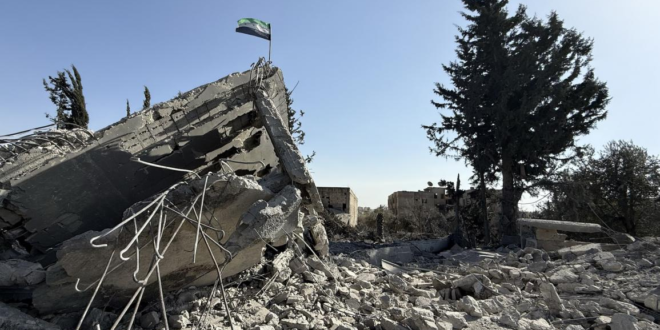Since its creation on the ruins of historic Palestine, Israel has loomed large in the Syrian national consciousness—not merely as a military adversary, but as an existential threat. Born of dispossession and expansion, it is still viewed by many Syrians as a usurper of part of “Greater Syria”—a historical identity deeply etched in collective memory. That perception sharpened in 1967, when Israel seized the Golan Heights, dealing Syria one of its most devastating strategic blows.
Paradoxically, after decades of conventional conflict—1948, 1956, 1967, 1973, 1982, and 2006—it is only now, in the aftermath of Syria’s civil war, that many Syrians feel Israel’s threat more acutely than ever. Irony abounds: the country once hailed as the beating heart of Arab nationalism now teeters on the edge of fragmentation, undermined by years of internal strife and foreign interference, with Israel playing no small part in that unravelling.
Israel’s Calculated Attrition
Over the past decade, Israel has methodically capitalised on Syria’s internal collapse. Exploiting the chaos of the civil war and the Assad regime’s brutal mismanagement, Tel Aviv pursued a strategy of incremental escalation. From 2013 to 2024, Israeli airstrikes gradually eroded Syria’s remaining military assets, culminating in their near-total destruction shortly before the fall of Bashar al-Assad. But the campaign did not stop at degrading Syria’s military.
Israel also moved to alter the territorial status quo, seizing additional Syrian lands and adopting a policy of balkanisation. Cloaked in the language of “minority protection,” it has sought to weaponise Syria’s internal divisions—sectarian, ethnic, and political—undermining the very idea of a unified Syrian state.
Damascus’ Delusion
The new government in Damascus, emerging from the ashes of the Assad era, initially clung to the hope that strategic restraint might buy stability. It refrained from condemning Israeli strikes, even as those strikes targeted national infrastructure and symbols of sovereignty. Some within the administration went so far as to argue that Israel’s destruction of Assad’s military was of no consequence, given that army’s prior role in repressing Syrians.
But reality has caught up. With Israel now posing a direct threat not only to Syrian sovereignty but to the country’s very cohesion, silence and passivity have become untenable. Damascus must act. The question is: what options remain?
Option 1: Rebuilding Deterrence
Reconstituting a credible military deterrent would theoretically allow Syria to defend itself. Yet this is more fantasy than strategy. The resources required—financial, material, human—are beyond reach. Years of reconstruction, procurement, and training would be needed, all under the unlikely condition that Israel ceases its attacks long enough to allow it. Such conditions are implausible at best.
Option 2: Finding a Protector
Could Syria find shelter under a regional power? Theoretically, yes—but in practice, no. Turkey, once a potential security partner, has grown increasingly wary of direct entanglement with Israel. Recent Israeli airstrikes on potential Turkish positions in Syria—such as Hama and Tiyas—suggest that Ankara is not interested in a confrontation.
The more probable scenario is a quiet understanding between Turkey and Israel: each consolidating influence in separate zones—Turkey in the north up to Homs, and Israel operating freely in the south.
Russia, despite its historic role, has consistently avoided military confrontation with Israel—even at the height of its alliance with Assad. There is no reason to believe Moscow would take a different approach now, particularly with its strained relationship with Syria’s new leadership. Meanwhile, Arab states offer only rhetorical support—statements of condemnation that do little to alter realities on the ground.
Option 3: Unity as Deterrence
That leaves Syria with one path: internal cohesion. The only viable strategy is to remove the very vulnerabilities that Israel exploits—sectarian divisions, weak institutions, and a fractured social contract. Syria must rebuild itself as a state that belongs to all its people, where citizenship, not identity, is the basis of inclusion.
This means forging a national narrative that transcends sect and region, building institutions through inclusive participation, and protecting the rights of all communities equally. When every Syrian sees themselves as a stakeholder in the future of the nation—when no group feels marginalised or endangered—then the pretext of “protecting minorities” evaporates. And with it, Israel’s strategy of intervention begins to collapse.
Syria cannot achieve military parity with Israel. It cannot rely on foreign powers to defend its sovereignty. Its survival now hinges not on missiles or foreign patrons, but on rebuilding the internal unity that was shattered by war.
Only a socially cohesive, politically inclusive Syria can resist fragmentation and foreign domination. This is the one form of deterrence Israel cannot destroy from the sky—and the only foundation upon which a truly sovereign Syria can rise again.
 Eurasia Press & News
Eurasia Press & News




